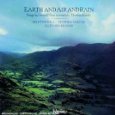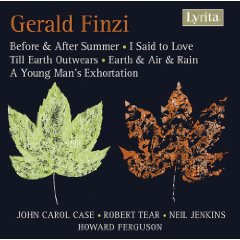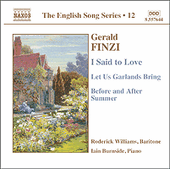For Life I had never cared greatly
Poet: Thomas Hardy
Date of poem:
Publication date:
Publisher:
Collection:
History of Poem:
Poem
For Life I Had Never Cared Greatly |
||
|---|---|---|
| 1 | For life I had never cared greatly, | |
| 2 | As worth a man's while; | |
| 3 | Peradventures unsought, | |
| 4 | Peradventures that finished in nought, | |
| 5 | Had kept me from youth and through manhood till lately | |
| 6 | Unwon by its style. | |
| 7 | In earliest years - why I know not - | |
| 8 | I viewed it askance; | |
| 9 | Conditions of doubt, | |
| 10 | Conditions that leaded slowly out, | |
| 11 | May haply have bent me to stand and to show not | |
| 12 | Much zest for its dance. | |
| 13 | With symphonies soft and sweet colour | |
| 14 | It courted me then, | |
| 15 | Till evasions seemed wrong, | |
| 16 | Till evasions gave in to its song, | |
| 17 | And I warmed, until living aloofly loomed duller | |
| 18 | Than life among men. | |
| 19 | Anew I found nought to set eyes on, | |
| 20 | When, lifting its hand, | |
| 21 | It uncloaked a star, | |
| 22 | Uncloaked it from fog-damps afar, | |
| 23 | And showed its beams burning from pole to horizon | |
| 24 | As bright as a brand. | |
| 25 | And so, the rough highway forgetting, | |
| 26 | I pace hill and dale | |
| 27 | Regarding the sky, | |
| 28 | Regarding the vision on high, | |
| 29 | And thus re-illumed have no humour for letting | |
| 30 | My pilgrimage fail. | |
(Hardy, 537) |
||
Content/Meaning of the Poem:
Speaker:
Setting:
Purpose:
Idea or theme:
Style:
Form:
Synthesis:
Published comments about the poem:
✦✼✦✼✦✼✦✼✦✼✦✼✦✼✦✼✦✼✦✼✦✼✦✼✦✼✦✼✦✼✦✼✦✼✦
✦✼✦✼✦✼✦✼✦✼✦✼✦✼✦✼✦✼✦✼✦✼✦✼✦✼✦✼✦✼✦✼✦✼✦
Musical Analysis
Composition date:
Publication date:
Publisher: Boosey & Hawkes - Distributed by Hal Leonard Corporation
Tonality:
Transposition:
Duration:
Meter:
Tempo:
Form:
Rhythm:
Melody:
Texture:
Vocal Range:
Tessitura:
Dynamic Range:
Accompaniment:
Published comments about the music:
Pedagogical Considerations for Voice Students and Instructors:
✦✼✦✼✦✼✦✼✦✼✦✼✦✼✦✼✦✼✦✼✦✼✦✼✦✼✦✼✦✼✦✼✦✼✦
✦✼✦✼✦✼✦✼✦✼✦✼✦✼✦✼✦✼✦✼✦✼✦✼✦✼✦✼✦✼✦✼✦✼✦
| Pitch Analysis | ||||||
|---|---|---|---|---|---|---|
| pitch | stanza 1 |
stanza 2 |
stanza 3 |
stanza 4 |
total | |
highest |
A |
|||||
G |
||||||
F |
||||||
E |
||||||
D |
||||||
middle C |
||||||
B |
||||||
A |
||||||
G |
||||||
F |
||||||
lowest |
E |
|||||
| Rhythm Duration Analysis of Vocal Line | |||||
|---|---|---|---|---|---|
| stanza 1 | stanza 2 | stanza 3 | stanza 4 | total | |
16th note |
|||||
8th note |
|||||
dotted 8th |
|||||
quarter note |
|||||
dotted quarter |
|||||
triplet |
|||||
half note |
|||||
dotted half |
|||||
stanza total |
|||||
✦✼✦✼✦✼✦✼✦✼✦✼✦✼✦✼✦✼✦✼✦✼✦✼✦✼✦✼✦✼✦✼✦✼✦
Audio Recordings
The Songs of Gerald Finzi to Words by Thomas Hardy
|
|
|
|
Gerald Finzi |
|
|
|
The English Song Series - 12 |
|
|
|
✦✼✦✼✦✼✦✼✦✼✦✼✦✼✦✼✦✼✦✼✦✼✦✼✦✼✦✼✦✼✦✼✦✼✦
The following is an analysis of **** by Gerhardus Daniël Van der Watt. Dr. Van der Watt extended permission to post this excerpt from his dissertation on October 8th, 2010. His dissertation dated November 1996, is entitled:
The Songs of Gerald Finzi (1901-1956) To Poems by Thomas Hardy
This excerpt comes from Volume II and begins on page *** and concludes on page ***. To view the methodology used within Dr. Van der Watt's dissertation please refer to: Methodology - Van der Watt.
1. Poet
Specific background concerning poem:
2. Poem
Setting
1. Timbre
VOICE TYPE/RANGE
2. Duration
METRE
Rhythmic motifs
Rhythmic activity vs. Rhythmic stagnation
Rhythmically perceptive, erroneous and interesting settings
Lengthening of voiced consonants
3. Pitch
Intervals: Distance distribution
Interval |
Upwards |
Downwards |
Unison |
||
Second |
||
Third |
||
Fourth |
||
Fifth |
||
Sixth |
||
Seventh |
Interval |
Bar no. |
Word/s |
Reason/s |
Melodic curve
Climaxes
System no. |
Pitch |
Word |
Phrase lengths
System no. |
From - To |
Suggested reason/s |
Chromaticism
HARMONY AND COUNTERPOINT
Non-harmonic tones
Harmonic devices
Counterpoint
FREQUENCY
RANGE
VARIETY
DYNAMIC ACCENTS
No. of parts |
No. of beats |
Percentage |
2 parts |
||
3 parts |
||
4 parts |
||
5 parts |
||
6 parts |
7. Mood and atmosphere
General comment on style
The following is an analysis of For Life I Had Never Cared Greatly by Curtis Alan Scheib. Dr. Scheib extended permission to post this excerpt from his dissertation on February 17th, 2012. His dissertation dated 1999, is entitled:
Gerald Finzi's Songs For Baritone On Texts By Thomas Hardy: An Historical And Literary Analysis And Its Effect On Their Interpretation
This excerpt begins on page seventy-five and concludes on page seventy-six.
For Life I Had Never Cared Greatly |
||
|---|---|---|
| For life I had never cared greatly, | ||
| As worth a man's while; | ||
| Peradventures unsought, | ||
| Peradventures that finished in nought, | ||
| Had kept me from youth and through manhood till lately | ||
| Unwon by its style. | ||
| In earliest years - why I know not - | ||
| I viewed it askance; | ||
| Conditions of doubt, | ||
| Conditions that leaded slowly out, | ||
| May haply have bent me to stand and to show not | ||
| Much zest for its dance. | ||
| With symphonies soft and sweet colour | ||
| It courted me then, | ||
| Till evasions seemed wrong, | ||
| Till evasions gave in to its song, | ||
| And I warmed, until living aloofly loomed duller | ||
| Than life among men. | ||
| Anew I found nought to set eyes on, | ||
| When, lifting its hand, | ||
| It uncloaked a star, | ||
| Uncloaked it from fog-damps afar, | ||
| And showed its beams burning from pole to horizon | ||
| As bright as a brand. | ||
| And so, the rough highway forgetting, | ||
| I pace hill and dale | ||
| Regarding the sky, | ||
| Regarding the vision on high, | ||
| And thus re-illumed have no humour for letting | ||
| My pilgrimage fail. | ||
(Hardy, 537) |
||
The poem is significant for Hardy and, consequently for Finzi, as it is one of his more positive statements about life. It speaks of a gained commitment to life that provides the poet a new sense of determination to proceed to his goal. Finzi's setting has an immediacy of expression and tunefulness that makes the song stand out among his other works. The key here is a solid D Major that never modulates. Finzi uses his technique of elongating phrases for emphasis and declamation, and the range in both voice and piano stays in the comfortable middle. Again, in contrast to many of his songs, there is an easily identifiable form present, ABABA1. The song reaches a carefully planned climax in the last verse, ending on a triumphant D Major chord. Altogether, it is one of Finzi's most direct and positive statements.
The preceding was an analysis of For Life I Had Never Cared Greatly by Curtis Alan Scheib. Dr. Scheib extended permission to post this excerpt from his dissertation on February 17th, 2012. His dissertation dated 1999, is entitled:
Gerald Finzi's Songs For Baritone On Texts By Thomas Hardy: An Historical And Literary Analysis And Its Effect On Their Interpretation
The excerpt began on page seventy-five and concluded on page seventy-six.



